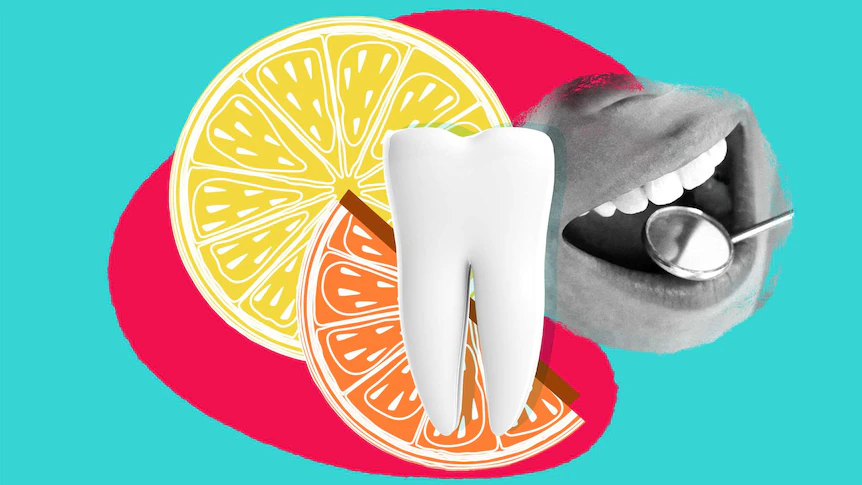You can help avoid this problem by following all your dentist’s aftercare instructions for proper healing. Here are some steps you might need to take after this procedure.
- Eat only soft foods: After most procedures, your dentist will usually require that you only eat soft foods until a recommended period has passed. If you eat other foods during your recovery period, you risk delaying the healing process.
- Rinse your mouth only as directed: If your dentist suggests using a mouth rinse or gargling with salt water, do so.
- Use compression: If your dentist recommends applying pressure to the healing areas, use gauze or compresses to stop the bleeding and prevent bacteria from getting into the wound while it heals.
- Continue to practice good oral hygiene: You need to keep gently brushing your teeth after your extraction.
What Should You Do If You Get an Infection After a Tooth Extraction?
Avoid relying on natural remedies for a suspected tooth infection. Though some mouth rinses can provide short-term relief, you need to see your dentist as soon as possible to have the infection drained and treated with an antibiotic. Below are the steps you should take if you think you might have a tooth infection.
- Consider Your Symptoms
Avoid panicking about your symptoms. It’s possible that what you’re experiencing isn’t unusual following an extraction. If you only have some minor pain and swelling, it’s unlikely you have an infection. However, if you have other symptoms, pay attention to them and take your health seriously.
- Contact Your Dental Clinic
Immediately call your dentist if you get a bone infection after a tooth extraction or other treatment. If you delay or avoid medical attention, you can experience sepsis, an infection that enters the bloodstream and will begin to affect your vital organs.
If your symptoms are mild or you are uncertain if you need tooth infection treatment, contact your dentist for an appointment. Make sure you describe what you’re experiencing, so your dental team will have an idea of what’s going on before you come in.
- Know When to Go to a Walk-In Clinic or Urgent Care Center
If your symptoms are severe or you can’t get an immediate appointment to see your dentist, you should go to a walk-in clinic instead of waiting. Severe symptoms include frequent pain that medication has failed to alleviate, a high fever, bleeding that has persisted for longer than 24 hours and other troubling issues.
Since your risk of developing sepsis will increase if you have an infection that you avoid getting treatment for, you can seek urgent care if your dentist cannot see you right away.
- Know When to Go to the Emergency Room
In extreme cases, sepsis results in septic shock, which lowers your blood pressure and leads to organ failure. Septic shock is a treatable but life-threatening condition that warrants an emergency room trip.
Sepsis is easier to manage if you begin antibiotics in its early stages. If you think a bone infection after getting your tooth extracted has resulted in sepsis, seeking immediate treatment will help you avoid the worst-case scenario trip to the ER.
How to Know If Your Tooth Is Infected
Before you seek treatment, you probably want to know how to tell if you have an infection after a wisdom tooth extraction or another procedure. If you recently developed an infection after having oral surgery, you will probably notice the same signs you would feel for a bone or socket infection. However, only your doctor can diagnose a tooth infection.
Below are the symptoms of this common complication:
- A persistent bitter taste in your mouth
- Foul-smelling breath from a buildup of bacteria
- A high fever
- Swollen gums
- Pain that persists after taking painkillers
- Tooth and gum sensitivity
- Swollen lymph nodes
- Pain or numbness that radiates down your jaw
- Swelling in the jaw
- Pus coming out of the socket
Some pain is typical after your extraction, but it should gradually improve as your mouth heals instead of worsening. You might also have some bleeding and swelling, but these should resolve after 24 hours.
How Do You Know If a Tooth Infection Is Serious?
Symptoms that might indicate a severe infection or the beginning stage of sepsis include:
- Difficulty swallowing or breathing
- Bleeding that fails to respond to compression
- Numbness in the mouth, tongue or jaw
- Pus or blood in your nasal discharge
Sepsis is a rare but life-threathing condition
that requires immediate medical intervention. If you or someone else appears to be experiencing septic shock, you should immediately go to your nearest emergency room.
Below are the symptoms of sepsis:
- A high fever
- Difficulty breathing
- Confusion
- Drowsiness or difficulty staying awake
- Dehydration
- Shivering
- A racing heart rate, weak pulse or other signs of cardiovascular distress
Why You Should See Your Dentist
Your dentist will need to see you for an exam to confirm whether you have a tooth infection. They will also need to know how severe your infection is or if you will require any additional treatment. Typically, if you develop an infection, your dentist will prescribe an antibiotic that will serve as an effective treatment for your case.
How Antibiotics Help
If you get an infection after a tooth extraction, your dentist will need to prescribe a round of antibiotics. This medication targets and kills the microbes responsible for your tooth infection, allowing you to recover and heal. Patients might require different types of antibiotics depending on their medical history and allergies.




